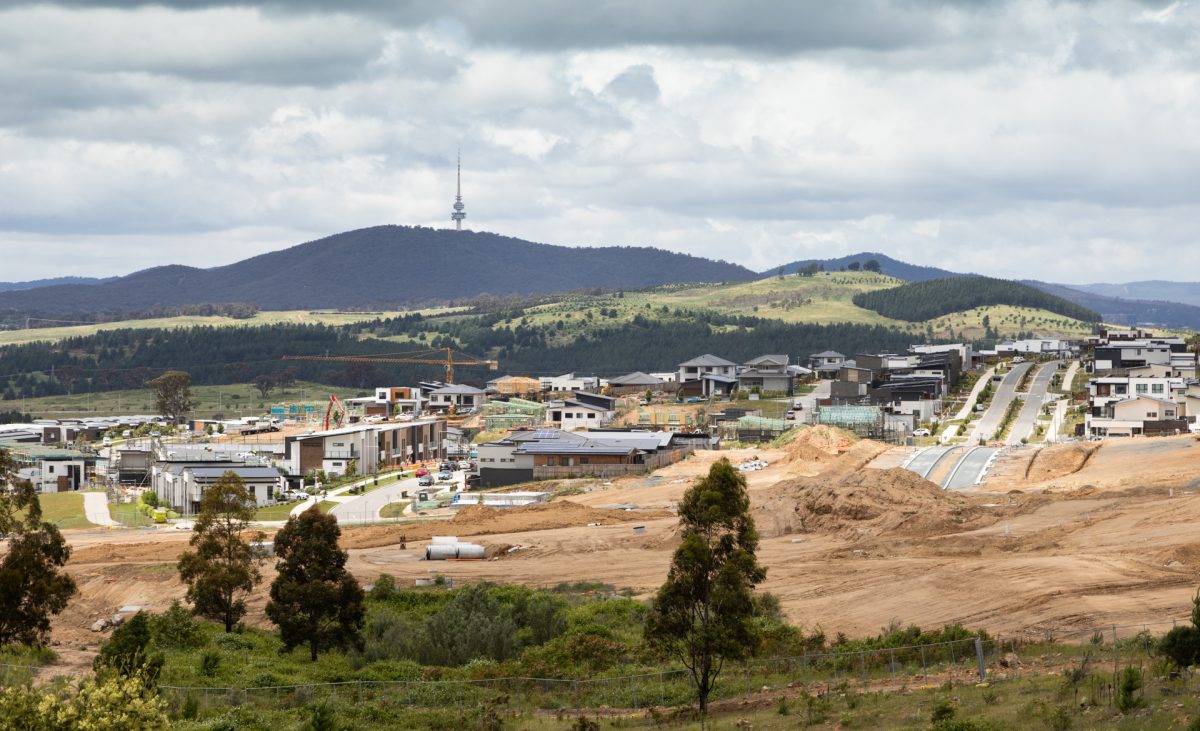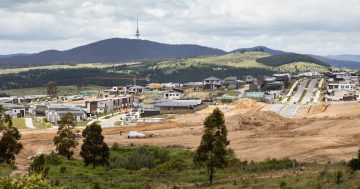
If passed, the ACT’s property developer licensing scheme would be the first in the country. Photo: Michelle Kroll.
A timeline has finally been locked in to introduce a bill to the Assembly to establish the country’s first property developer licensing scheme.
The bill was an ACT Labor 2020 election commitment. It would require developers to adhere to a “fit and proper person” test, apply to undertake higher-risk developments such as apartment builds and establish a penalty scheme to bar developers from working in the ACT under certain circumstances.
A long-time supporter of the scheme, Labor backbencher Michael Pettersson put forward a motion to the Legislative Assembly to have the bill introduced for debate by the end of the year.
He submitted property developers held “significant power” in the Territory, were trusted with people’s futures, and dictated terms to builders, workers and consumers; therefore, they should be held to an established standard.
“The amount of money up for grabs [in this space] is simply eye-watering,” Mr Pettersson said.
“The stakes are [also] incredibly high, so high that seemingly everyone else involved in the industry requires some sort of license or registration – builders, architects, tradies, even real estate agents.”
Mr Pettersson questioned why all these people needed to be held accountable through formal processes, but it appeared property developers did not.
“You’d think there would be some regulation about who can become a property developer, but there isn’t,” he said.
“Right now here in the ACT, anyone rich or connected enough to get their hands on land can make decisions about how Canberrans can live and about our shared urban spaces.
“It doesn’t matter how many times they’ve burnt a customer, drove a project into the ground or double-crossed their workers, anyone can be a property developer in Canberra.”
Mr Pettersson said he wanted to create the “toughest property developer licensing scheme possible” to combat the “rampant unethical behaviour” that he had heard some property developers had been undertaking in Canberra.
He felt the “fit and proper person” test would strengthen public trust in property developers, hold them to account, help people know if someone undertaking a development had the financial and operational capacity to start and finish a job, and let workers know their wages were able to be paid.
Mr Pettersson pointed to a survey which found 77 per cent of Canberrans agreed property developers had too much unrestricted power in the ACT and a petition for the scheme containing 1128 signatures to back up his campaign.
“This gives us a mandate to legislate a strong scheme with real teeth,” he said.
“I think it’s high time we rein in these property developers.”
The motion also contained a clause to review the Building and Construction Industry (Security of Payment) Act 2009 to determine the need for any “urgent and simple” amendments to strengthen security of payment protections and make the process less complex.
The review would have to report back to the Assembly by the first sitting week in October.
The Canberra Liberals questioned why the motion needed to be brought forward given the Environment, Planning and Sustainable Development Directorate (EPSDD) – under Sustainable Building and Construction Minister Rebecca Vassarotti – had already outlined a timeline for this election promise.
Shadow Planning and Land Management Minister Peter Cain pointed out the discussion paper had been issued in November 2022, and community engagement ended on 27 February 2023.
“But there is a part of the timeline which has not been ticked yet and it’s way back in March, and that is the listening report from this consultation,” he said.
Mr Cain added an amendment to Mr Pettersson’s motion that the listening report had to be published by the end of May, which has since happened.
The report showed strong community support for a licensing scheme but less support from industry stakeholders.
The community did not support the idea of a voluntary code of practice, while the industry did not support the application of rectification orders for developers.
Despite any issues around timing, Mr Cain said the Canberra Liberals supported a developer regulation scheme.
“We are committed to some responsible, sensible developer licensing scheme that doesn’t overburden industry with red tape but is driven by consumer protection, looking after the smaller players in the industry and assuring the community that we’re keeping an eye on this very significant activity in the ACT,” he said.
Ms Vassarotti clarified that work on the contents of the bill was well underway.
“Further consultation will be taken, and once complete, we’re on track to present legislation for the Assembly’s consideration by the end of the year,” she said.
The news has been welcomed by the ACT branch of the Construction, Forestry, Maritime, Mining and Energy Union (CFMEU), which organised petitions fighting for this legislation.
In a statement, the union said it had been a “long fight” to reach this point: “Property developers have gotten away with their dodgy practices for too long now, and it’s great to see the ACT Government putting a stop to it.”




















